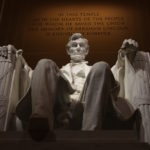This essay is part of our series on the significance of the rise of the “Nones.” See the full collection here.
The statistics indicate that there are as many Americans with no religion as there are Evangelicals or Catholics. Those with weak or “cultural” religious identity are rapidly disappearing. The rise of those without religion—the “Nones”—is now well-documented and the occasion of much commentary, including this series in which we examine the Nones as they relate to the five central topic areas of Public Discourse. Nathaniel Peters has explored what this means for religion itself. Mark Regnerus has asked what the impact will be for sexuality. Matt Franck examined the implications of waning religiosity for the political community. Today I explore what the rise of the Nones might mean for education.
Douglas Coupland, often described as the voice of Generation X, wrote that his was the first generation to be raised without religion as the default background context. Still, for Coupland, God’s death was experienced as a tragic loss, and finding meaning or purpose was a tragic challenge.
Just a few decades later, however, Terry Eagleton describes contemporary disbelief quite differently. For him, it is “post-tragic,” not anything like a loss. Earlier generations, Eagleton suggests, experienced themselves as having a “God-shaped hole” in their hearts, a restlessness and desire for fulfillment that could only be filled by God. For those seeking ultimate meaning, its absence is a terrible wound. By contrast, he suggests that, for the thoroughly postmodern contemporary, the desire was never present. Thus, the loss of God is not experienced as a tragedy. In fact, his absence is barely recognized at all. It’s not that we simply don’t believe in God, Eagleton says, but rather that we don’t view ourselves as having inner depths or personhood in need of such fulfillment. Not only religion disappears, but so too those depths described by existentialists, idealists, romantics, psychoanalysts, and transcendentalists. Moses is passé, but so is Freud; Jesus is ignored, but so are Camus and Thoreau.
Start your day with Public Discourse
Sign up and get our daily essays sent straight to your inbox.This is part and parcel of what Charles Taylor calls “exclusive humanism”: the idea that the highest possible good is human well-being, with “well-being” deflated to something achieved through purely technological, political, and economic means, entailing only the material satisfactions offered by growing GDP and the newest iPhones. Supernatural vocation has vanished, and even the old humanism is judged naïve, haunted by religiously tainted accounts of human dignity and aspirations.
Given the loss of both religion and human depths, what is the point of education for exclusive humanism?
The Purposeless Humanities
If human well-being is the goal, the place of STEM at the schools and universities is quite obvious. In fact, I’d suggest that the usual explanations for the decline of the humanities are missing the point somewhat. Certainly, the cost of higher education, student debt, the legacy of the Great Recession, and the challenges of finding good employment play some role in the rush to majors thought more useful and employable. Yet all of that is positioned within a major shift of cultural meaning where the old humanistic vision of education is thought ridiculous. If exclusive humanism is true, theologically informed accounts of education are defunct. So too are those theories of education that promise nobility of soul, virtue, or the discovery of self.
A religious account of education strives for the “greater glory of God” and the salvation of souls. Secularized humanistic versions proclaim the care of souls or the education of the whole person (cura personalis) in virtue, wisdom, freedom, the first and highest things, or the really human things. Obviously, these goals are not identical, and colleges could be distinguished by which of these they sought. Still, they were alike in not reducing education to human well-being alone.
Very little remains of such visions of education. This is evidenced by the many contemporary attempts to justify the liberal arts for their supposed contributions to diversity, global citizenship, workforce preparation, or skills in problem solving, writing, and research. When all else fails, the feeblest skill of all—critical thinking—is trotted out. Never mind that there’s little evidence that the humanities as currently practiced contribute much to this skill, or that the aspirations of the ancients, medievals, renaissance humanists, Enlightenment thinkers, or Romantics are even remotely hinted at with the promise of “thinking critically.”
In the world of exclusive humanism, the STEM disciplines have a point; they can articulate a defense of themselves, however truncated. The humanities, however, struggle to justify themselves as serving anything more than curiosity, cleverness, aestheticism, or a kind of decadent traditionalism. Of course, the humanities can attempt to remake themselves in the image of STEM, imitating some aspect of STEM’s method or claiming some of its benefits. This generally happens through a politicization of the curriculum and the faculty in service of the good of wellness, equity, consciousness-raising, or the righting of historic wrongs. While there’s certainly some truth in those promises, and the humanities have generally been linked to some sort of civic purpose, they used to aim at something more.
The Fragmentation of Knowledge
Furthermore, even though the pragmatic results of our current educational regime are obvious, so too is the fragmentation of knowledge. The death of a meaningful core curriculum is now standard at many universities, and the core requirements that remain can often be satisfied with a dilettantish smattering of courses from various disciplines that never cohere into unity. A student may take courses from a variety of disciplines, but these bear very little relation to each other. Undoubtedly, this situation arises in part due to the scattered nature of university departments and disciplines. Yet the underlying reason, I suggest, is that absent some unifying higher good, knowledge cannot but tend to fragmentation. If questions of ultimate meaning and purpose are shuttled to the side, as they are in so many of our schools and colleges, the various disciplines and domains of knowledge can never attain a unifying vision. In fact, some now describe the university as the multiversity.
While a university obviously need not be religious, any university in which theology is absent or ignored will fail to see how things “hang together” in the broad sense. I’m not suggesting universities must be confessional, but theology is the “architectonic” discipline, the study capable of placing all the other disciplines in relation to each other, an attempt to see the whole. (Natural theology, or philosophy, could come close, but university philosophy departments have largely abandoned the “search for wisdom” in a pale attempt to imitate neuroscience or have reverted to the study of unrelated problems, such as the problems of free will, ethical quandaries, and the nature of mind.) The reductive attempt to see physics or biology as the root cause of all things does not allow the truly human things to be acknowledged and studied as humans experience and live them in concrete reality. As a result, ultimate questions lose their status as ultimate.
From the standpoint of exclusive humanism, questions that begin from the standpoint of transcendence are indulgent, deceptive distractions. Or, even worse, they are opiates, numbing the student into a false reverence for the past while pacifying or taming the student from addressing the more urgent needs of his own time. Asking such questions is worse than useless—it is irresponsible. Thus, it’s unsurprising that an education dominated by exclusive humanism would take the form of critique.
For decades, our schools and universities have taught not only critical thinking, but thinking in critique—the attempt to unmask, deconstruct, problematize, or otherwise reveal the arbitrary and illusory nature of culture, religion, ethics, politics, or art. Current education does not simply privilege the objectivity of the sciences while putting up with the supposed subjectivity of the humanities. Instead, it trains the student to distrust, to be undeceived by any claims to truth or wisdom. The message is clear: only a rube would imagine her culture to be normative. Only the benighted considers his religious claims to be universal. Consequently, education as a kind of slander emerges, with heroes and saints and sages subject to the most withering skepticism. Students are left with the security of speaking “their” truth, what we might call the unexamined life. The identity politics that so thoroughly hollows out our schools and our regime develops from this, for if there can be no real “test” of beliefs—or when the “tests” of tradition or religion are viewed as nothing other than power-ploys—the self-interpretation of the individual cannot be subjected to real scrutiny but must be accepted in its entirety.
Insofar as the Nones inhabit the world of exclusive humanism, they are unlikely to receive a real education, even though theirs will be an incredibly powerful and productive training in technique. Such an education may deliver wealth, but it cannot deliver more; it may deliver gains in medicine, but it cannot deliver more; it may deliver innovation and disruption, but it cannot deliver more. Such an education cannot provide an apprenticeship in the really human things, in wisdom, in gratitude, in piety.
Inevitably, such an apprenticeship will be unknown. Eventually, it will be considered unacceptable. This all but guarantees that exclusive humanism will become a self-fulfilling prophecy. Because it precludes the forms of thought that challenge its hegemony, exclusive humanism increasingly appears as the only live option, the only possibility for understanding our world and our purpose within it. Without radical change, we can expect the Nones to grow and grow.















